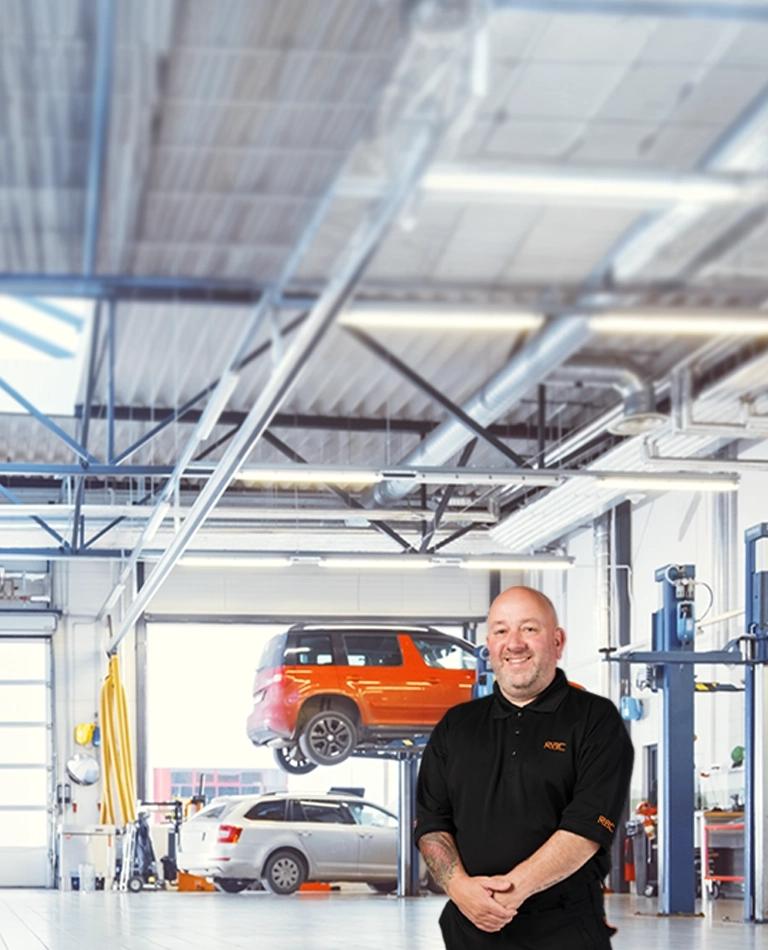

Book a diagnostic
A mechanic will check your car for faults and talk you through any repairs you might need. There are various ways to check for faults, which could include a physical examination or plugging in to check your car’s onboard engine management system.
Content Guide
Introduction
Keeping your engine in good shape is essential to giving your car a long, healthy life. By knowing what common engine problems to look out for and how to fix them, you can keep your ride running smoothly and avoid costly surprises. It’s all about taking a little time now to save big later.
What is an engine?
An engine is the heart of your car. It turns fuel into power to get you moving to where you want to go. It’s made up of parts like cylinders, pistons, and valves, all working together to keep things running smoothly.
Common engine issues
Engines can face a few common issues over time:
- Low lubrication: Without enough oil, engine parts wear out faster.
- Oil pump failure: A bad pump means poor lubrication, risking serious damage.
- Old oil: Old oil collects debris, which hurts performance.
- Poor compression: Caused by worn piston rings, leaky valves, or gasket issues.
- Leaking coolant: Coolant leaks can make engines overheat.
- Blocked radiators: A blocked radiator can cause overheating.
- Prolonged engine detonation: This can damage engine components over time.
- Faulty oxygen sensors: Faulty sensors impact engines’ fuel efficiency and performance.
- Old spark plugs: Worn spark plugs cause misfires and poor engine performance.
How often should you repair your engine?
It depends on your vehicle’s age, mileage, and maintenance. Regular maintenance like oil changes help prevent problems. Generally, have your engine checked every 12,000 miles or once a year.
Signs your engine needs repair
Catching engine problems early can save you money. Watch for these signs:
- Check engine light: A clear warning that something's wrong.
- Strange noises: Knocking, ticking, or tapping sounds can reveal engine issues.
- Excessive smoke: Blue, white, or black smoke from the exhaust can mean issues.
- Poor performance: A noticeable drop in power or acceleration can mean engine trouble.
- Oil patches: Oil spots under your car can mean a leak.
- Overheating: Constant overheating points to a cooling system or engine issue.
Cost of engine repairs
- Engine repair costs depend on the problem and engine type.
- Regular engine maintenance helps avoid expensive repairs. Know the signs of engine trouble and act quickly. Always consult a mechanic for accurate estimates and diagnostics.
Frequently Asked Questions on engine repair
When the check engine light comes on, it’s best to see a mechanic right away. This could mean anything from a minor issue to something serious.
If your car overheats, pull over safely and turn off the engine. Let it cool down, then check the coolant level. Add coolant or water if needed and get professional help quickly if this doesn’t fix the problem.
Engine oil should be changed every 5,000 to 7,500 miles. Check your owner’s manual for the exact recommendations for your car.
Discolored oil can mean it’s old or mixed with coolant or fuel. It’s best to get it checked by a mechanic.
It depends on your warranty. Many cover engine repairs up to a certain mileage or time. Check your warranty details or ask your dealer.
Engine repairs or replacements are typically not covered by standard insurance policies unless the damage is from an accident or other covered event. Check your policy for details.
It varies widely. Minor repairs might be a few hundred pounds, but major repairs or replacements can cost several thousands. Always ask your mechanic for more information.
The cost of repairing a misfire depends on the issue. Common causes include faulty spark plugs, ignition coils, or fuel injectors.
It depends on the repair cost, your car’s value, and its condition. If the repair costs more than the car’s value, you might be better off getting a new one.
Yes, most engine damage can be repaired. Whether it’s worth fixing depends on how bad the damage is and how much it costs.
Repair costs vary widely. It can range from a few hundred to several thousand pounds, depending on the problem.
Keep up with regular maintenance, timely oil changes, and using high-quality fuel. Follow your car maker’s maintenance schedule.
Filter by


